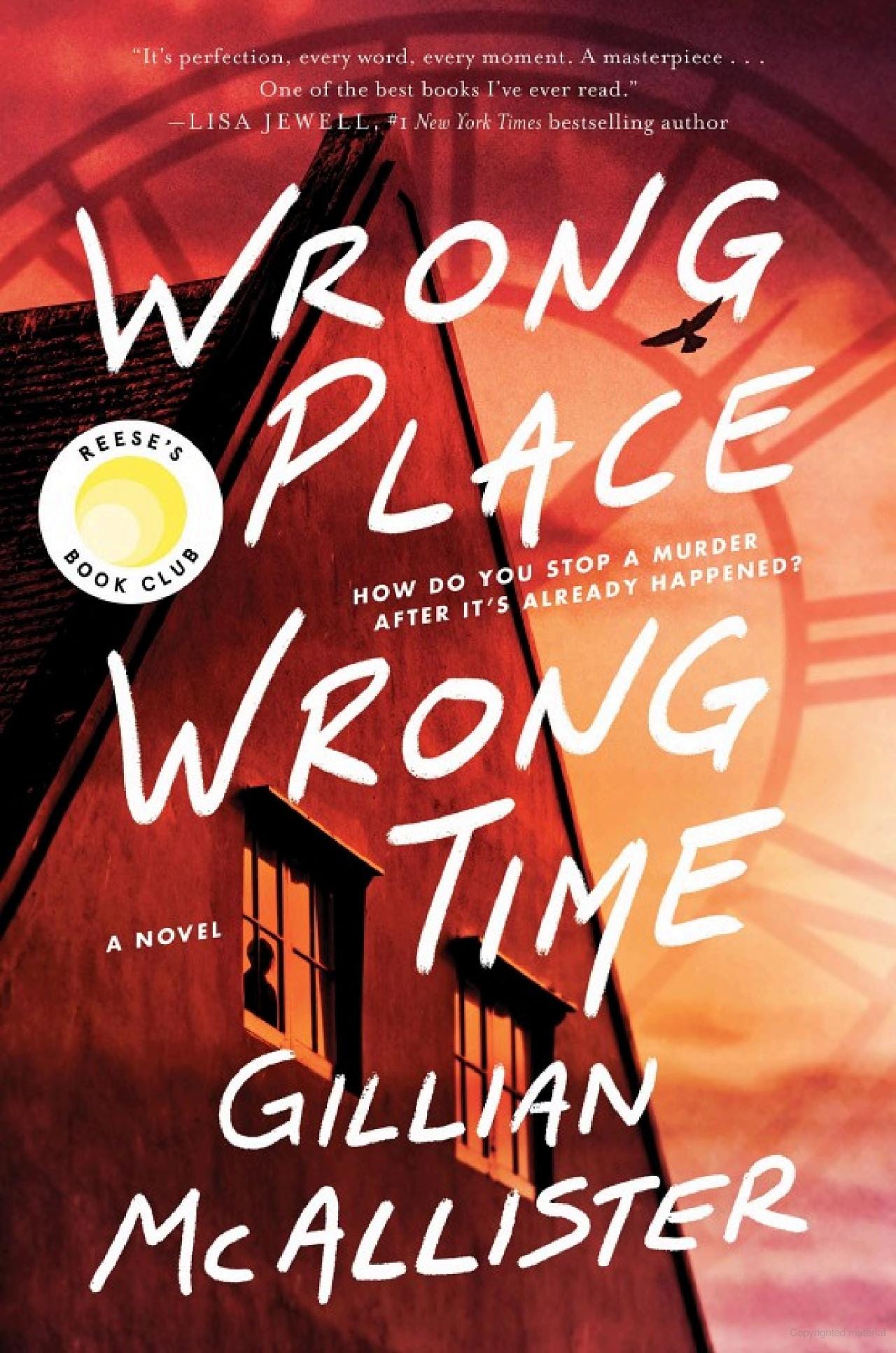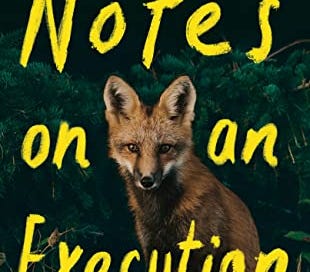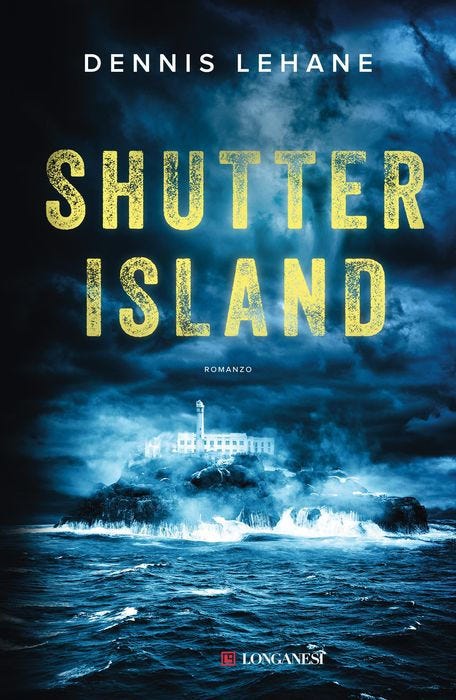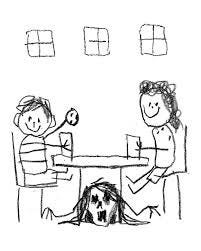The Envy Post
Books that make us productively jealous and how to turn those green feelings into crafty ambitions
This post was sparked by a friend (hello, DW!) mentioning envy over a month ago, which got me thinking about how envy has or hasn’t been useful in my life. Early on, it served as a clear beacon, telling me what I wanted. For example, the time I was repeatedly put on hold while a national magazine editor spoke with another young writer who was in the field, covering the Exxon Valdez oil spill in Alaska, writing about something more interesting than what I, an 18-year-old freelance writer living in a small Midwestern college town, could possibly find to write about.
That envy told me: Aim higher! And get out of this shitty town that you only moved to because of your boyfriend and his bandmates. Be the person with whom the editor wants to speak, not the one she keeps putting on hold!
At middle age, envy has become more of a mixed bag, but I’ve been pondering it anew, wondering what further insights it might offer.
And then last week happened. My paperback, THE DEEPEST LAKE, was chosen as a Barnes and Noble Pick for May, and sales became shockingly brisk—which should have made me happy, and it did. Except…that the sales fell just short of getting me on any bestseller lists.
And being close to that dream actually made me much more anxious and unsatisfied than I’d felt months prior, when my book was selling modestly.
If envy was intellectually intriguing weeks ago, it became a sticky, pulsing beast over the last two days.
Yesterday, checking the new NYT bestseller list just after it posted, I had to ask: Why does everyone have to love Colleen Hoover and Freida McFadden so much? Why do they get all the bestseller spots? Arggghh! And then there’s Liz Moore! A writer whose work I’ve admired for more than a decade now, from the days before she wrote the two suspense novels—Long Bright River and God of the Woods—that have made her a star.
Now, let me tame the green beast and consider books that are not on the current bestseller lists, about which I can nurture and investigate a more creative form of jealousy. And here’s the experiment I want you to do with me. Don’t just think about an author or book. Think about the writing. What makes you envious about it, specifically? Because if you’re feeling that way, you probably value something very specific about the prose. And if you can analyze and articulate it, that means it may be within your reach. We envy what is close, not what is far.
(I’m not saying my writing is close to the authors I’ll discuss next—but close enough for me to know why I admire them!)
In response to my request for envy-provoking examples last week,
LAURA LEFFLER wrote: Omg NOTES ON AN EXECUTION by Danya Kukafka is my immediate response. It is a page turner and fresh, but the prose is magical, and the scenes took my breath away.
LIZ ALTERMAN wrote: I loved SORROW & BLISS by Meg Mason. The way she was able to intertwine humor with sadness blew me away. The characters felt so real and the relationship between Martha and her sister Ingrid has stayed with me for years.
KRISTIN OFFILER wrote: I wish I’d written WRONG PLACE WRONG TIME by Gillian McCallister because of the unique structure and the perfectly executed twist. I also wish I could write character descriptions like Maggie Shipstead. I don’t think anyone does it quite as masterfully and uniquely as her. I wish I could evoke pure dread (or any emotion) as acutely as Tracy Sierra did for me in NIGHTWATCHING.

JAMEY BRADBURY wrote: Oh, boy, you've hit a nerve! The envy book for me is Emma Straub's THIS TIME TOMORROW. I read it right after finishing a draft of my own father-daughter time travel book. My heart sank with every page of Straub's novel, as I realized just how similar our books were. But hers was SO MUCH BETTER. Smarter, sadder, funnier, lovelier--it was everything I wish my draft could be, and everything it wasn't. I was dazzled with her book. At the same time, reading her book clarified why mine wasn't working. Honestly, it allowed me to recognize maybe that wasn't a story I was ready to tell and to move on to a different project.
Oh, Jamey, I’m feeling you there!
Caitlin’s comment is in the footnotes for reasons of propriety.1
My turn! And it’s my post so I am going to be wordier than our helpful commenters.
SHUTTER ISLAND by Dennis Lehane. For me, the ideal envy book is old enough I’m not seeing it on lists or Instagram; no one is hyping it. It just is. Lehane’s book (which became a movie starring Leonardo DiCaprio), set in the 1950s, is about a U.S. Marshal who goes to an isolated hospital for the criminally insane to investigate the disappearance of a patient who is a multiple murderer.
I haven’t actually read the book for a while, so I have no idea why I’m thinking about it lately, except that it is less predictable and formulaic than so many thrillers being published today. It’s both Gothic and noirish, a fusion of literary and cinematic inspirations. It is psychological and political. The stormy, brooding atmosphere is amazing. The book features an unreliable narrator and a big twist.
What I didn’t realize until this post came due—thanks, readers!—was that Lehane specifically wrote Shutter Island to push back against readers’ and industry expectations after the success of Mystic River. (Another great book.) He also wanted to write something tauter and more focused, with fewer characters and a different kind of structure than his previous hit.
Oh, how I love a book written 1) in defiance and 2) as a creative experiment to please and challenge the writer himself.
Mr. Lehane, we’ve never met, but you have just given me a code to live by.
GONE GIRL by Gillian Flynn. Wait, please don’t skim ahead! I’m not going to cover the obvious! According to the New Yorker, Gone Girl explores our illogical fear of couplehood. Lots of people love the book’s structure, huge midbook twist, and ending.
I didn’t care about the ending. And I have no fear about couplehood whatsoever. When I read Gone Girl over a decade ago, what I loved were the parts that preceded our understanding of the disappearance. I loved Flynn’s characterization of the characters’ early love affair (backstory well-executed!), and especially, the caustic portrait of a Midwestern suburb falling into economic hard times. I love the voice, the humor, the sass. This was the book that initiated my appreciation for cultural commentary in a mystery—in other words, reflections on society or gender or a specific cultural issue, aside from Whodunnit.
The part of the book I really disliked? The anniversary treasure hunt. Felt forced to me. Too cute. Big pass. And yet, it didn’t ruin the reading experience because the book had so much going on! This is a balm to my writer’s soul. Not only do readers love or hate different books, they love or hate different parts of their favorite books. It’s okay!
One more of the dozens I could list.
HIDDEN PICTURES by Jason Rekulak. I discovered Rekulak only this year, and what a delight this writer is. Hidden Pictures—a horror/thriller novel that includes a limited number of illustrations that evolve from simple comics to elaborate, frightening artwork as part of the plot. Rekulak’s first novel written for adults grabbed me from the opening scene with its depiction of a drug-addled yet still very strong and sympathetic main character, who while in the first stages of her recovery becomes a nanny to a peculiar family. Great opening, about a bizarro scientific experiment. Great protagonist. And Rekulak manages to make the child in the story both bright and credible. (I detest dull fictional children in books or movies.)
As with Shutter Island, this book flirts with multiple genres and defies our expectations. Is something supernatural going on? Whom do we trust? It’s funny, it’s scary, and reading the book, you feel like Rekulak was having a blast writing it.
I hope this exercise has been helpful for you! It’s been helpful for me.
I realize I love books that refuse to fit neatly into one subgenre. I love a book with wit and something to say about the world. I like to feel like the writer is having a good time, taking risks. Yes, please. More risks! Authors, I will tolerate your slip-ups and your “not-as-good” books if you continue to stretch!
Writing those words, I’m not feeling envy anymore. I’m just wanting to read or re-read some of the books mentioned in this post. Ahhhhh.
More thoughts? Other books pop into mind? Sudden epiphanies about the career turn you want to take now that you’ve analyzed your own envy? Please comment!
CAITLIN WAHRER wrote: I know you're going to be like "I can't use that!!!!" but WHAT BOYS LEARN [Andromeda’s next book, ahem, due out in Jan 2026] is legit sparking envy. I think it's how quickly I feel connected to and interested in the narrator. There's a lot more about the book that I love (including how naturally the plot is flowing and tension is building), but I think my connection to the narrator is the part that's sparking envy…
Love all of the comments we receive! Even if the last one was a compliment from a friend. I’ve had a weird and anxious week, folks. I’ll accept compliments.







Maybe the best way to defeat envy is to articulate it! (Same as the best way to kill a joke!)
I really love this for the opposite reason - I have never really attempted serious fiction but I desperately want to write books that I think are missing from the market, which is the perfect combination of gothic spooky compelling AND literary.
on the other hand, there are many many Substack pieces I wish I had written. ooo the envy is REAL